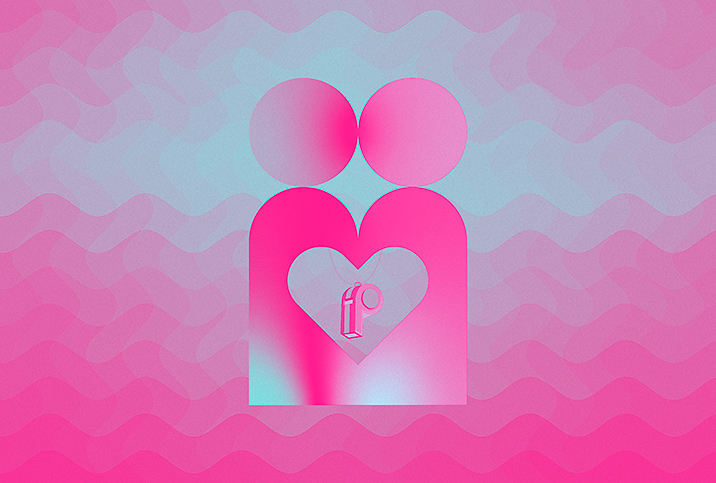Why You Should Never Ignore 'The Ick'

You're at a beautiful restaurant. Across from you sits your date. It's a new relationship—you're maybe two or three dates in—but already, it seems too good to be true. You make each other laugh, you like all the same movies, plus, you can't seem to stop gazing into each other's eyes from across the candlelit table. It may be early, but you can't imagine anything going wrong.
That's when your date reaches for their wine glass. They smugly sniff and swirl and sip. Something in you recoils. A feeling of disgust—faint but undeniable—begins to bubble up inside you. You've got "the ick."
Ted Mentele, editor in Didactics at the language learning app Babbel, explained "the ick": a term that describes that all-too-familiar feeling of repulsion for a new romantic partner. Mentele said that the term was used in a 1995 episode of Friends entitled "The One with the Ick Factor," when Monica got the ick when she learned her new boyfriend's real age. The term gained popularity in 2017, when Olivia Attwood, a contestant on the British reality TV show "Love Island," said that she had developed the ick from her new love interest, Sam.
A feeling of disgust—faint but undeniable—begins to bubble up inside you. You've got 'the ick.'
The ick can develop in a relationship for a number of reasons—the types of music they listen to, the way they style their hair, the sound of their laugh or even the way they drink their wine. Often, the ick is caused by something that seems trivial and inconsequential enough to ignore.
While many people may be tempted to ignore this feeling when it comes, it can actually be an important sign that you and your new partner aren't a good match. So, why does the ick matter more than we think and what do experts have to say about it?
Why we get the ick
"If you get 'the ick' from someone, then you were never really interested in them in a romantic way from the beginning," said Katherine Hertlein, Ph.D., a relationship therapist and expert advisor at sex therapy app Blueheart. It's easy, she said, to see a new love interest through "love goggles" that block out the less desirable parts of their personality. "This sometimes happens when people crave being in a romantic relationship and they glorify any and every potential partner," she said.
For others, bad habits show up a few dates in. Andia Bothe, a relationship expert at Dating Scout, explained that the ick tends to set in when we begin to consider getting more serious with a partner. "You are now at the stage where you are considering your future with your partner, that's why you see all the good things and the bad," she said. When we start to think in longer terms, we often see habits and mannerisms in a new light.
The consequences of ignoring the ick
In some cases, people decide to overlook the habits and characteristics that cause the ick. However, it's usually best to trust your gut instincts as soon as the ick sets in, as you may be keeping the relationship going for the wrong reasons. "If you choose to look past these signs, consider evaluating why you're ignoring these signs," Hertlein said. "Is it because you just want to be in a relationship regardless of who it's with?"
Hertlein explained that it is usually a sign that your instincts are kicking in and telling you that there is something wrong with your new relationship. It can even be a sign that you're intuitively picking up on some serious red flags. In most cases, the feeling will only get worse the longer you try to suppress it. "The ick probably won't subside, and you could be setting the relationship up for failure, as well as causing a lot of unnecessary pain when you finally do break things off," she said.
Can you ever get past it?
Sometimes, a relationship can survive the ick—but it takes work. According to Bothe, it's possible to get past the ick if you're willing to accept those "icky" parts of your partner. "Most of the time, habits and mannerisms cannot be reversed—they have been hard-wired into a person's brain and being," she said. "It's up to you if you can accept your partner without conditions."
Decide whether you're getting the ick because of red flags, or whether it's caused by habits that are less serious. Sometimes, you'll be able to work toward accepting your partner's annoying habits and mannerisms. However, if you decide the feeling is too strong to work past, it's probably time to trust your gut and end things sooner rather than later.


















